2026 Presentations
All presentations are free with registration. Since we are adding presentations currently, feel free to select when you pick up your badge or, since space is limited, save your confirmation number and log in again to select.
- Wednesday
- Getting to Know the Great Florida Birding & Wildlife Trail Updated!
- Florida Master Naturalist Program: Environmental Education in Action! – Wednesday New!
- Snakes of Florida
- Why What You Plant in Your Landscape is Important to Birds and the Environment
- Using Props to Teach Nature (or Is This Powerpoint Really Necessary?)
- The Florida Grasshopper Sparrow: Natural History, Decline, and Recovery of Florida’s Sparrow
- Birds and Conservation on Panama’s Western Caribbean Slope New!
- Thursday
- John James Audubon’s Expedition to Florida
- Florida Master Naturalist Program: Environmental Education in Action! – Thursday New!
- Scrub Habitat Restoration for the Florida Scrub Jay
- Man & Gull – A Complex Relationship Updated! Additional seats now available!
- Learn iNaturalist
- Climate Change Impacts in Our Own Backyard
- Screening of “Lights Out Texas” Documentary New!
- Friday
- Earbirding with your Phone
- Birds, Butterflies and Biodiversity of Mexico New!
- Finding Stories Close to Home
- Restoring the Balance of the Indian River Lagoon
- Using Motus to Study Bird Movement and Behaviour
- Amazing Sounds of Birds Updated! Additional seats now available!
- Please Speak Up: Lessons from the Lorax, the Onceler, and Horton
- Taking your Birding to the Next Level
- The Language of Birds Updated! Additional seats now available!
- My Plastic Diet
- Fakhatchee Strand’s Ghost Orchids and Other Rare Plants New!
- Saturday
- A Shared Vocabulary
- Disappearing shorelines: An under-appreciated threat to the Indian River Lagoon
- Colombia
- Rare Birds, Close Calls, and Adventures of an Eco-Explorer New!
- Birds & Culture in Southern Portugal New!
- Listen to Her Sing
- Birding in Portugal & Spain New!
- eEBird Tips and Tricks: Maximizing Your Use of the World’s Largest Citizen Science Database
- The Best Bird Sounds You’ve Never Heard
- Birding in the Age of Technology
- Birding the Prime Meridian – Sharks, Sea Turtles, and Seabirds of the South Atlantic New!
Wednesday, January 21
Getting to Know the Great Florida Birding & Wildlife Trail
Join Bert Alm to learn what the GFBWT is and how the website works. He will also provide some background on his journey to visit all of the GFBWT sites.
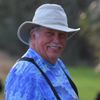
- Date: Wednesday, January 21
- Time: 12:00 p.m. – 1:15 p.m.
- Location: Radisson Resort at the Port, Bermuda Room
- Cost: Free with festival registration
- Speaker: Bert Alm
About the Speaker: Bert Alm is the Treasurer for Space Coast Audubon Society and past Field Trip Director. Bert retired in 2016 and has been actively birding ever since. Bert and his wife Val travel across Florida, the country and internationally looking for birds and other natural beauty. He has lead groups to Central and South America and has most recently visited Ecuador and the Galapagos. Bert and his wife also volunteer at the Brevard Zoo’s Sea Turtle Healing Center caring for sick and injured Sea Turtles. Bert is also an Advanced Florida Master Naturalist.
Florida Master Naturalist Program: Environmental Education in Action! – Wednesday
Learn about an engaging environmental education program that explores Florida’s unique ecosystems and natural history; preparing and empowering graduates to champion conservation and sustainable development while raising awareness and respect for Florida’s natural world across all ages.
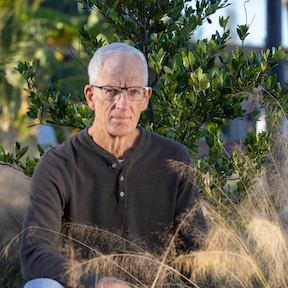
- Date: Wednesday, January 21
- Time: 12:00 p.m. – 1:15 p.m.
- Location: Radisson Resort at the Port, Jamaica Room
- Cost: Free with festival registration
- Speaker: Dennis Mayo
About the Speaker: Dennis Mayo is a Florida Master Naturalist and committed environmental advocate. Through the Florida Master Naturalist Program and the Space Coast Regional Friends Group of the FMNP, he has dedicated extensive time to exploring Florida’s diverse ecosystems and studying the critical relationships between native plant and animal species.
In addition to his fieldwork, Mayo is active in nature photography, citizen science, and hands-on conservation. He has documented more than 740 plant and animal species, many from his own property, and shares his work on platforms such as iNaturalist.org. His contributions provide valuable data that support scientists in addressing the biodiversity crisis and understanding the challenges pollinators and other wildlife face due to habitat loss, climate change, and disease.
“There are no passengers on spaceship earth. We are all crew.” Marshall McLuhan
Snakes of Florida
Florida is famous for its diversity of reptiles, and since the 1980s John Serrao has been photographing and documenting them, from the panhandle’s ravines to the central scrub and highland ridge to the Everglades. This presentation features more than 35 of Florida’s snakes, including all 6 venomous species. It includes amazing photos of the largest indigo snake documented in Volusia country in at least 40 years (found by John in 2013) as well as snakes ranging from 6 to 7 feet, coachwhips and eastern diamondback rattlesnakes, to 8-inch crowned snakes. John not only shows how to identify these beautiful animals but also their important roles as predators in Florida’s ecosystems. The program will encourage participants to see snakes in a new light—valuing their role in nature and recognizing the need to preserve the expansive habitats vital to their future.

- Date: Wednesday, January 21
- Time: 12:00 p.m. – 1:15 p.m.
- Location: Radisson Resort at the Port, Antigua Room
- Cost: Free with festival registration
- Speaker:
About the Speaker: John Serrao received his M.S. degree with an emphasis on entomology from Cornell University and has been a professional Naturalist, writer, photographer, and tour leader since the 1970s. He has written 7 books about wildlife and natural history, created dozens of Nature Trails with Self-Guiding Booklets, led thousands of nature walks and slide presentations, and conducted Wildlife Surveys for state parks, nature centers, resorts, and private natural areas. Every Sunday from 1988 to 2011, his weekly column, “Pocono Outdoors”, appeared in the Pocono Record, one of northeastern PA’s largest newspapers. His photos have appeared in hundreds of magazines, textbooks, field guides, and museums. He has lived in DeLand, Florida with his wife, Felicia since 2011.
Why What You Plant in Your Landscape is Important to Birds and the Environment
Why is WHAT you plant in your landscape important? Here’s the science to prove how important your landscape choices are. We’ll be sharing a copy of Dr. Doug Tallamy’s presentation ‘Restoring Nature’s Relationships’ with amazing nature photography which shows the relationship between plants and wildlife.
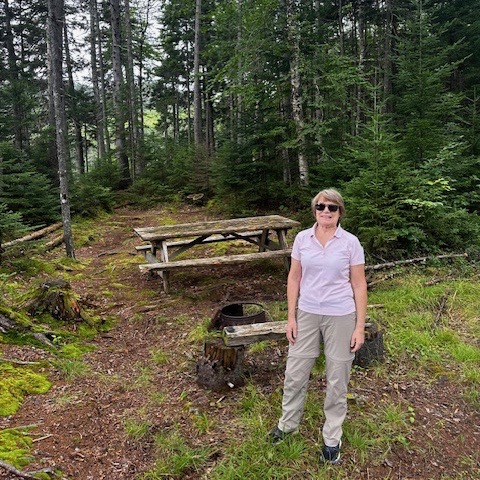
- Date: Wednesday, January 21
- Time: 1:30 p.m. – 2:45 p.m.
- Location: Radisson Resort at the Port, Bermuda Room
- Cost: Free with festival registration
- Speaker: Jane Higgins
About the Speaker: Jane Higgins moved to Brevard County over 45 years ago from Maine. After working at Harris for 30 years in accounting and raising two children, she started following her mother’s passion for gardening. Her motivation to go native started when she realized her youngest son would be leaving for college and she would have to learn how to use a lawnmower to mow a lawn that didn’t look very good to begin with. Jane joined the Conradina Chapter of the Florida Native Plant Society 12 years ago and has been on the Board for the past 10 years. She is also on the Landscaping with Florida Natives Tour Committee. The grass and the lawnmower are now both gone and she enjoys going outside to see what’s blooming and all the wildlife, recently including a Barred Owl. Jane is a huge fan of Dr. Doug Tallamy’s work and enjoys sharing his message with others!
Using Props to Teach Nature (or, Is This Powerpoint Really Necessary?)
Would you rather see a power point presentation about how spiders eat, or would you rather see an insane old lady dress up as a spider and demonstrate how spiders eat? Come to my talk to learn how to make and use props, puppets, costumes, songs – whatever it takes to keep nature and environmental education fun and memorable.

- Date: Wednesday, January 21
- Time: 1:30 p.m. – 2:45 p.m.
- Location: Radisson Resort at the Port, Jamaica Room
- Cost: Free with festival registration
- Speaker: Dee Fairbanks Simpson
About the Speaker: Dee Fairbanks Simpson writes and photographs a daily blog called Dee at 8 a.m. (http://www.deeat8am.com). For 9 years and counting, she has used the blog to entertain and educate people about the flora and fauna of Florida. She has self-published 2 books based on her blog. Dee is a creative contributor to her husband’s business, Birding with David Simpson. She uses her skills as a Florida Master Naturalist to design the classes that she and David teach. In addition, she creates puppets and other props used in their classes as well as her own videos and short films.
The Florida Grasshopper Sparrow: Natural History, Decline, and Recovery of Florida’s sparrow
Elusive, endemic, and critically endangered; meet our state’s very own grassland songbird, the Florida Grasshopper Sparrow! These ground nesting birds face a multitude of threats, including invasive fire ants, flooding, and habitat loss, and their conservation story is one of resilience, creativity, and collaboration. From building predator exclusion fences around nests, to creating a conservation breeding program, people and agencies from across the state are stepping in to recover the species, which has been in decline since the 1980s and now numbers less than 200. Mary Marine will dig into the history of the species, where we are, where we are headed, and how YOU can get involved in the recovery journey of the Florida Grasshopper Sparrow.
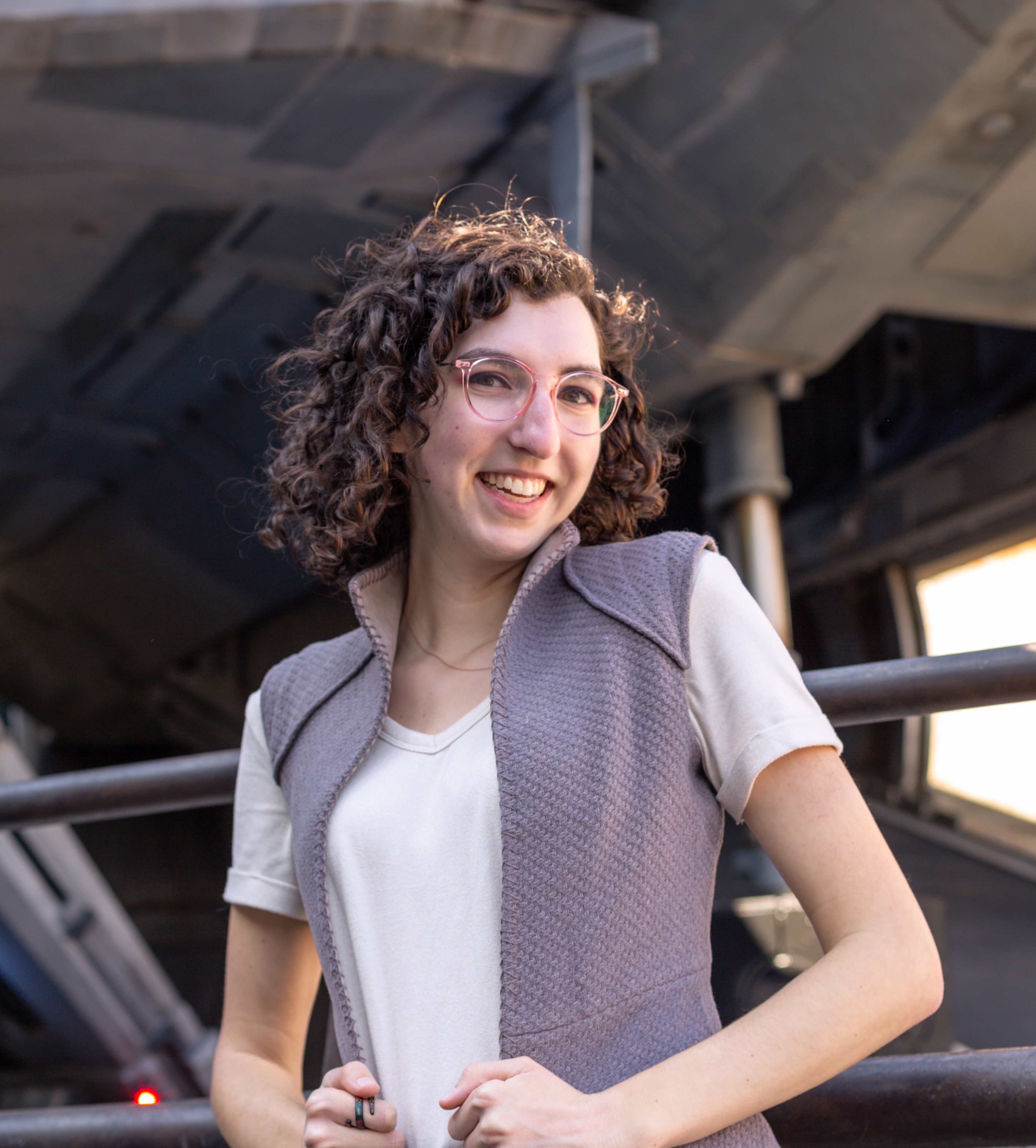
- Date: Wednesday, January 21
- Time: 3:00 p.m. – 4:15 p.m.
- Location: Radisson Resort at the Port, Bermuda Room
- Cost: Free with festival registration
- Speaker: Mary Marine
About the Speaker: Mary Marine is a Research Assistant at Archbold Biological Station. She leads the Florida Grasshopper Sparrow (FGSP) field work at DeLuca Preserve, one of four monitored FGSP breeding aggregations. Her love of Florida and passion for endangered species conservation led her back to her home state, where she now lives with her wildlife biologist husband who also works with FGSPs at a nearby site. She enjoys wildlife photography and traveling within the ABA and abroad for birds.
Birds and Conservation on Panama’s Western Caribbean Slope
Bocas del Toro, Panama, is not only unique, but also breathtaking! There are few places on earth where you can see all life-zones known to the Tropics, and we’re one of them. Bocas del Toro could be the most ecologically diverse place on planet Earth, we just haven’t found everything yet. Endemism of the local flora and fauna is off the charts. There are over 70 regionally endemic species of birds alone. A biological corridor of connected protected areas, creates an extremely important zone for altitudinal tropical migrants, that rely on high altitude and low humid coastal forests to support their breading and seasonal fruit foraging. The same habitat is also crucial for all the North American migrants we know and love. We created a 700- acre reserve, including all stakeholders, to ensure that local habitats are protected and to provide a sustainable way of life for future stakeholders.
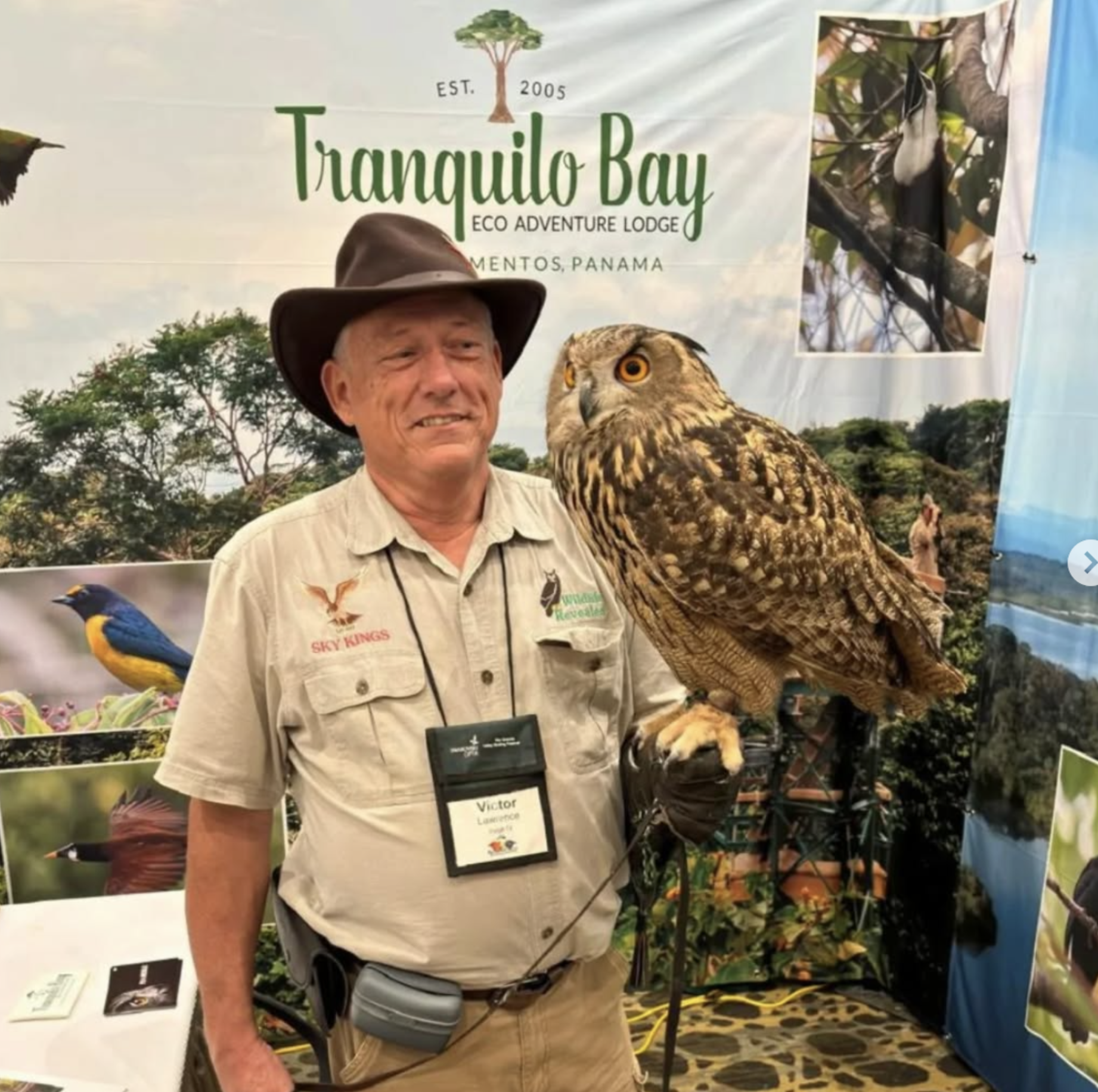
- Date: Wednesday, January 21
- Time: 3:00 p.m. – 4:15 p.m.
- Location: Radisson Resort at the Port, Antigua Room
- Cost: Free with festival registration
- Speaker: Jim Kimball
About the Speaker: Jim Kimball is an owner/operator of Tranquilo Bay Eco Adventure Lodge in Bocas del Toro, Panama. He has lived on site for over 20-years with his wife and business partner, creating a world class, full service, wildlife preserve. In doing so, they have in protection nearly 700-acres of old growth Low humid Atlantic forest in the Western Caribbean, a habitat vitally important to an extraordinary cornucopia of regionally endemic species of flora and fauna.
Thursday, January 22
John James Audubon’s Expedition to Florida
Come hear award-winning environmental advocate and author, Clay Henderson, talk about his book in which he chronicles Audubon’s paintings and descriptions of previously unknown birds of the Florida wilderness. The narrative retraces his journeys through swamps, encounters with Indians and pirates, and survival from violent storms. Henderson visited and searched for birds in all the places Audubon visited from the St. Johns River to Dry Tortugas..
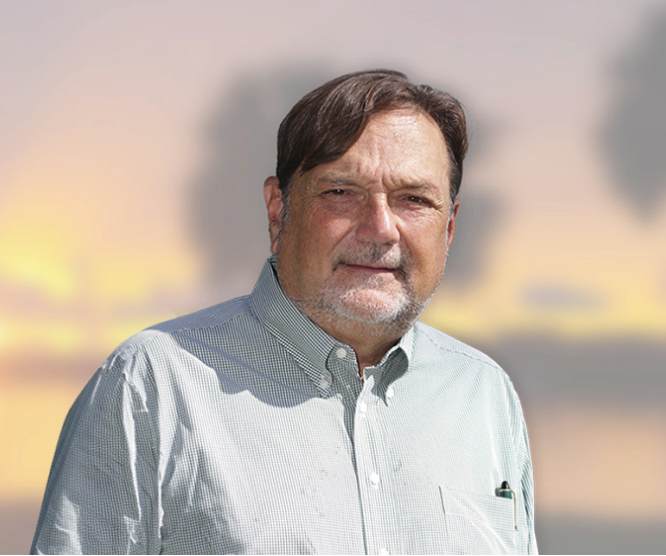
- Date: Thursday, January 22
- Time: 12:00 p.m. – 1:15 p.m.
- Location: Radisson Resort at the Port, Bermuda Room
- Cost: Free with festival registration
- Speaker: Clay Henderson
About the Speaker: Clay Henderson is an award winning environmental lawyer, educator, and writer long involved in environmental policy. He has served as president of Florida Audubon Society and Florida Trust for Historic Preservation. His previous public service includes Florida Constitution Revision Commission, Florida Communities Trust, and Chair of the Volusia County Council. Until his retirement, he served as Executive Director of the Institute for Water and Environmental Resilience at Stetson University. He has been recognized with the national public service award from The Nature Conservancy, lifetime achievement award from Environment and Land Use Section of the Florida Bar, and an EMMY award for Protect Our Paradise. His book, Forces of Nature, an environmental history of Florida, received a Florida Book Award.
Florida Master Naturalist Program: Environmental Education in Action! – Thursday
Learn about an engaging environmental education program that explores Florida’s unique ecosystems and natural history; preparing and empowering graduates to champion conservation and sustainable development while raising awareness and respect for Florida’s natural world across all ages.

- Date: Thursday, January 22
- Time: 12:00 p.m. – 1:15 p.m.
- Location: Radisson Resort at the Port, Jamaica Room
- Cost: Free with festival registration
- Speaker: Dennis Mayo
About the Speaker: Dennis Mayo is a Florida Master Naturalist and committed environmental advocate. Through the Florida Master Naturalist Program and the Space Coast Regional Friends Group of the FMNP, he has dedicated extensive time to exploring Florida’s diverse ecosystems and studying the critical relationships between native plant and animal species.
In addition to his fieldwork, Mayo is active in nature photography, citizen science, and hands-on conservation. He has documented more than 740 plant and animal species, many from his own property, and shares his work on platforms such as iNaturalist.org. His contributions provide valuable data that support scientists in addressing the biodiversity crisis and understanding the challenges pollinators and other wildlife face due to habitat loss, climate change, and disease.
“There are no passengers on spaceship earth. We are all crew.” Marshall McLuhan
Scrub Habitat Restoration for the Florida Scrub Jay
description
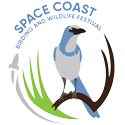
- Date: Thursday, January 22
- Time: 1:30 p.m. – 2:45 p.m.
- Location: Radisson Resort at the Port, Bermuda Room
- Cost: Free with festival registration
- Speaker: Brevard County Endangered Lands
About the Speaker: SPEAKER, Scrub Habitat Restoration for the Florida Scrub Jay” –Brevard County Endangered Lands
Man & Gull – A Complex Relationship
Among the world’s “seabirds”, gulls are the most accessible to humans, invading our most immediate surroundings. Gulls are sometimes perceived as 2nd class avian creatures. This, along with the identification challenges they present and their readiness to hybridize, has created a love-hate relationship for many birders. Yet some gulls species are among the most coveted bird species on any birder’s list (think Ross’s Gull and Ivory Gull). This presents us with an interesting juxtaposition. Do we like some gulls and look past others? Amar Ayyash will take us through an entertaining and intriguing exploration of the natural history of gulls, including their thorny taxonomy, and he’ll share some of their lesser-known adaptations and quirky behaviors.
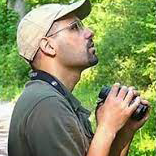
- Date: Thursday, January 22
- Time: 1:30 p.m. – 2:45 p.m.
- Location: Radisson Resort at the Port, Jamaica Room
- Cost: Free with festival registration
- Speaker: Amar Ayyash
About the Speaker: Amar Ayyash is both an expert on the gulls of North America and an evangelist for “gull recreation”. He coordinates the Annual Gull Frolic on Lake Michigan, hosts the popular website anythinglarus.com, and is often found speaking at birding events throughout the continent. Much of his free time is dedicated to traveling the world to photograph and study gulls. Amar has published a number of papers and articles on gull identification, distribution, and molt, and his recently published book, The Gull Guide, has earned high praise around the world. In 2024, Ayyash was awarded the American Birding Association’s Robert Ridgeway Award for Outstanding Ornithological Publication.
Learn iNaturalist
In this presentation you will learn the purpose, features and community science benefits of using iNaturalist. This talk is ideal for nature lovers, hikers, educators, students and anyone curious about connecting technology with conservation. By the end of this presentation, you’ll be ready to explore, record, and share the biodiversity natural world while making your observations count for science! To get the most out of this presentation, please download and install iNaturalist on to your phone prior to class.

- Date: Thursday, January 22
- Time: 1:30 p.m. – 2:45 p.m.
- Location: Radisson Resort at the Port, Antigua Room
- Cost: Free with festival registration
- Speaker: Dee Fairbanks Simpson
About the Speaker: Dee Fairbanks Simpson writes and photographs a daily blog called Dee at 8 a.m. (http://www.deeat8am.com). For 9 years and counting, she has used the blog to entertain and educate people about the flora and fauna of Florida. She has self-published 2 books based on her blog. Dee is a creative contributor to her husband’s business, Birding with David Simpson. She uses her skills as a Florida Master Naturalist to design the classes that she and David teach. In addition, she creates puppets and other props used in their classes as well as her own videos and short films.
Climate Change Impacts in Our Own Backyard
When you hear “climate change”, do you think about icebergs and polar bears? Join wildlife ecologist, Becky Bolt, for a look at the climate change that is happening right now in our own backyards.
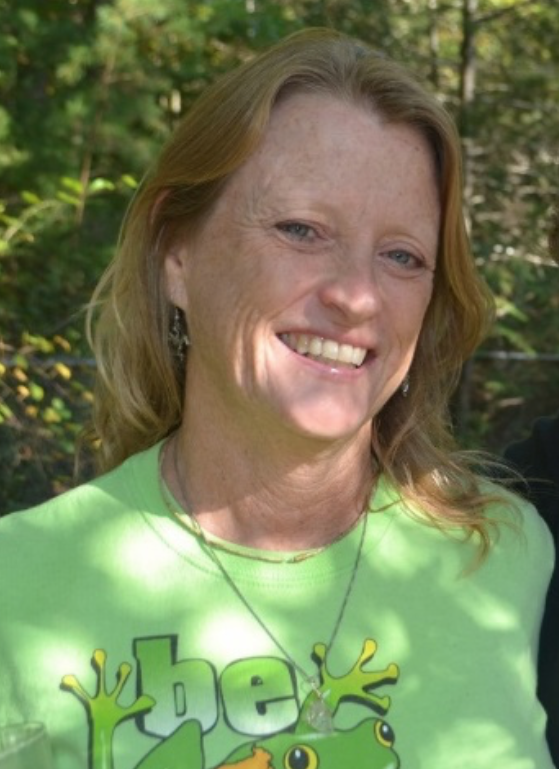
- Date: Thursday, January 22
- Time: 3:00 p.m. – 4:15 p.m.
- Location: Radisson Resort at the Port, Bermuda Room
- Cost: Free with festival registration
- Speaker: Becky Bolt
About the Speaker: Becky Bolt is a wildlife ecologist who worked on the Kennedy Space Center for 35 years before retiring in 2022. She has since started a nature education company called Bolt Outdoors, wrote “My First Birder’s Life List”, and is vice-president of the Merritt Island Wildlife Association.
Screening of Lights Out Texas Documentary
For millennia, Texas’ skies have cradled a remarkable spectacle – the migration of birds. Guided by the stars and the planet’s magnetic field among other cues, these fearless travelers embark on odysseys of epic proportions. Yet, against cities’ radiant nighttime backdrops, a poignant tale unfolds – the disorienting web of light pollution that distorts their cosmic guides. This film is a tale of redemption, where science and action harmonize in unity. Applied and research science join hands with conservation and education, pledging to safeguard these fragile wanderers. Data from the US weather surveillance radar network weave into a tapestry of understanding. Modern machine learning unfurls secrets, reshaping how we perceive the pulse of the planet’s spring and fall rhythms. Yet, the true lesson lies in the partnership among conservation groups, government and the private sectors. United in purpose, they craft a symphony of compassion – a simple yet profound dimming of lights. It is my hope that after watching this film, that with every light we dim, a beacon of hope is kindled.
Learn more about Lights Out for Birds here: birdcast.info/science-to-action/lights-out/

- Date: Thursday, January 22
- Time: 3:00 p.m. – 3:15 p.m.
- Location: Radisson Resort at the Port, Antigua Room
- Cost: Free with festival registration
- Lights Out Texas Documentary produced by Daniel Sheire, Cornell Lab of Ornithology
Friday, January 23
Earbirding with your Phone
In this session, we will discuss apps for recording and identifying birds with your cell phone, with special attention to Merlin Sound ID. If you have a favorite app, you can bring it and discuss; if you’ve never used your phone for recording, identifying, or making spectrograms of bird sounds, we will get you set up.
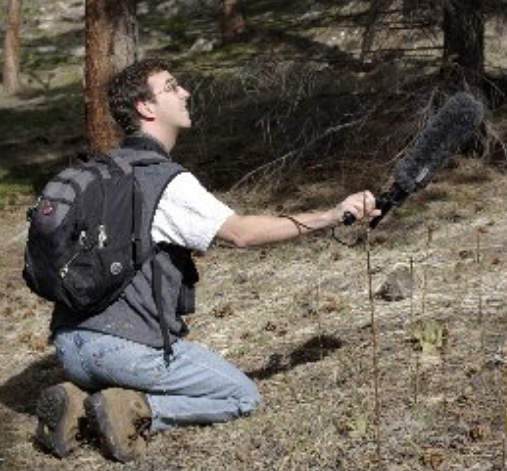
- Date: Friday, January 23
- Time: 7:30 a.m. – 8:45 a.m.
- Location: Radisson Resort at the Port, Jamaica Room
- Cost: Free with festival registration
- Speaker: Nathan Pieplow
About the Speaker: Growing up in South Dakota, I got started identifying bird songs by studying the classic “Birding By Ear” field guides in the Peterson series. It wasn’t until 2003, when I faced the frustrations of studying sounds for my first trips to Mexico and Costa Rica, that I became dedicated to finding new and better ways to learn, describe, and catalog bird sounds. Along the way I became a sound recordist and an amateur ethologist (a student of animal behavior). I live in Boulder, Colorado, where I teach writing and rhetoric at the University of Colorado. I am a former editor of the quarterly journal Colorado Birds and one of the developers of the Colorado County Birding Website and the Colorado Birding Trail. I regularly give talks about bird sounds to bird clubs and ornithological societies.
Birds, Butterflies and Biodiversity of Mexico
Raptor migration, monarch butterflies, endemic birds! An expert on Rose-bellied Buntings, Rodrigo will explore a few of Mexico’s natural treasures and crucial preservation strategies in Veracruz, Michoacán, Oaxaca and beyond.
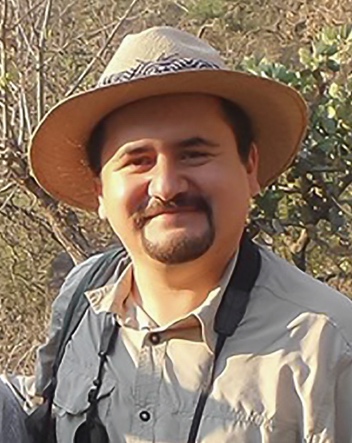
- Date: Friday, January 23
- Time: 12:00 p.m. – 1:15 p.m.
- Location: Radisson Resort at the Port, Bermuda Room
- Cost: Free with festival registration
- Speaker: Rodrigo Lopez, Holbrook Travel
About the Speaker: Rodrigo Ulises López Valdeso is a tireless promoter of birding, birdwatching tourism, conservation, and environmental education. For over a decade, he has designed and explored routes for birding in Mexico, always engaging local and indigenous guides. In 2020, Rodrigo founded the Central West Mexican Birding Society to create a forum for communication and collaboration between groups across five states engaged in appreciating and conserving birds. He has served on the Board of Directors of Sociedad Audubon de México for the past nine years.
Finding Stories Close to Home
description
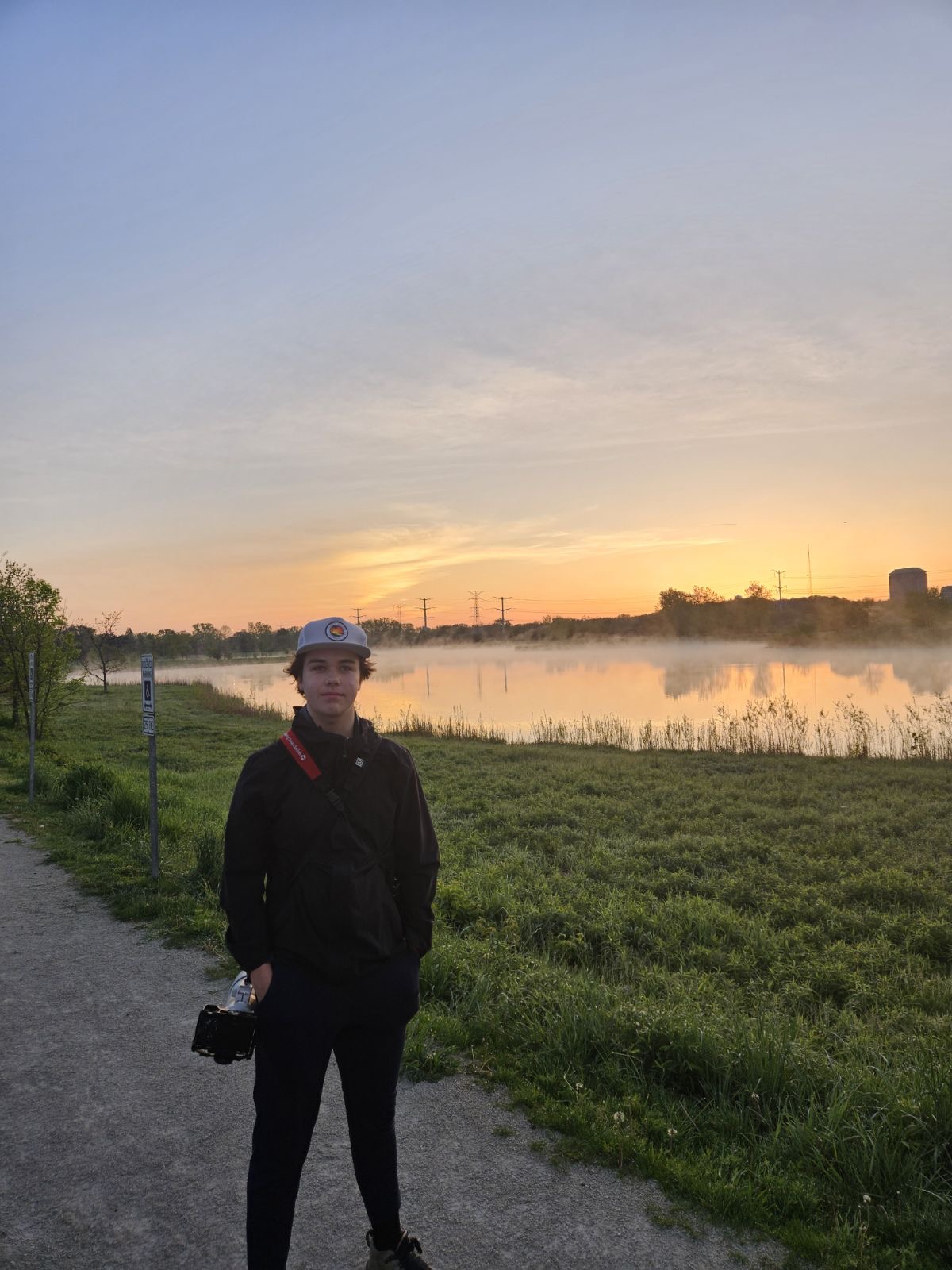
- Date: Friday, January 23
- Time: 12:00 p.m. – 1:15 p.m.
- Location: Radisson Resort at the Port, Jamaica Room
- Cost: Free with festival registration
- Speaker: Henry Meade
About the Speaker: Henry Meade is an award-winning nature and sports photographer based in the Chicagoland area, recognized for his sharp eye for detail and passion for storytelling. While bird photography is a particular focus, his portfolio spans a wide range of subjects—all driven by a deep commitment to visual storytelling and photographic excellence. Over the past few seasons, Henry has served as the lead sports photographer at his high school, capturing countless iconic plays and memorable moments on the field. He is also a proud affiliate of Hunt’s Photo and Video and serves as a trip leader with the DuPage Birding Club, among other organizations. Whether documenting wildlife or athletic competition, Henry brings clarity, creativity, and purpose to every frame.
Website: https://henrymeade.myportfolio.com/work
eBird profile: https://ebird.org/profile/OTcxOTMz/US
Instagram: @hm_birds https://www.instagram.com/hm_birds?igsh=ZmZlMmVvYWlzdHZ0&utm_source=qr
Restoring the Balance of the Indian River Lagoon
The current condition of the IRL didn’t change overnight – there was a recent defining moment that tipped the Lagoon from a more natural seagrass dominated system to a less natural algae dominated system. When we understand our roles in what ails the lagoon, we can better understand how to bring it back to a healthier balance.
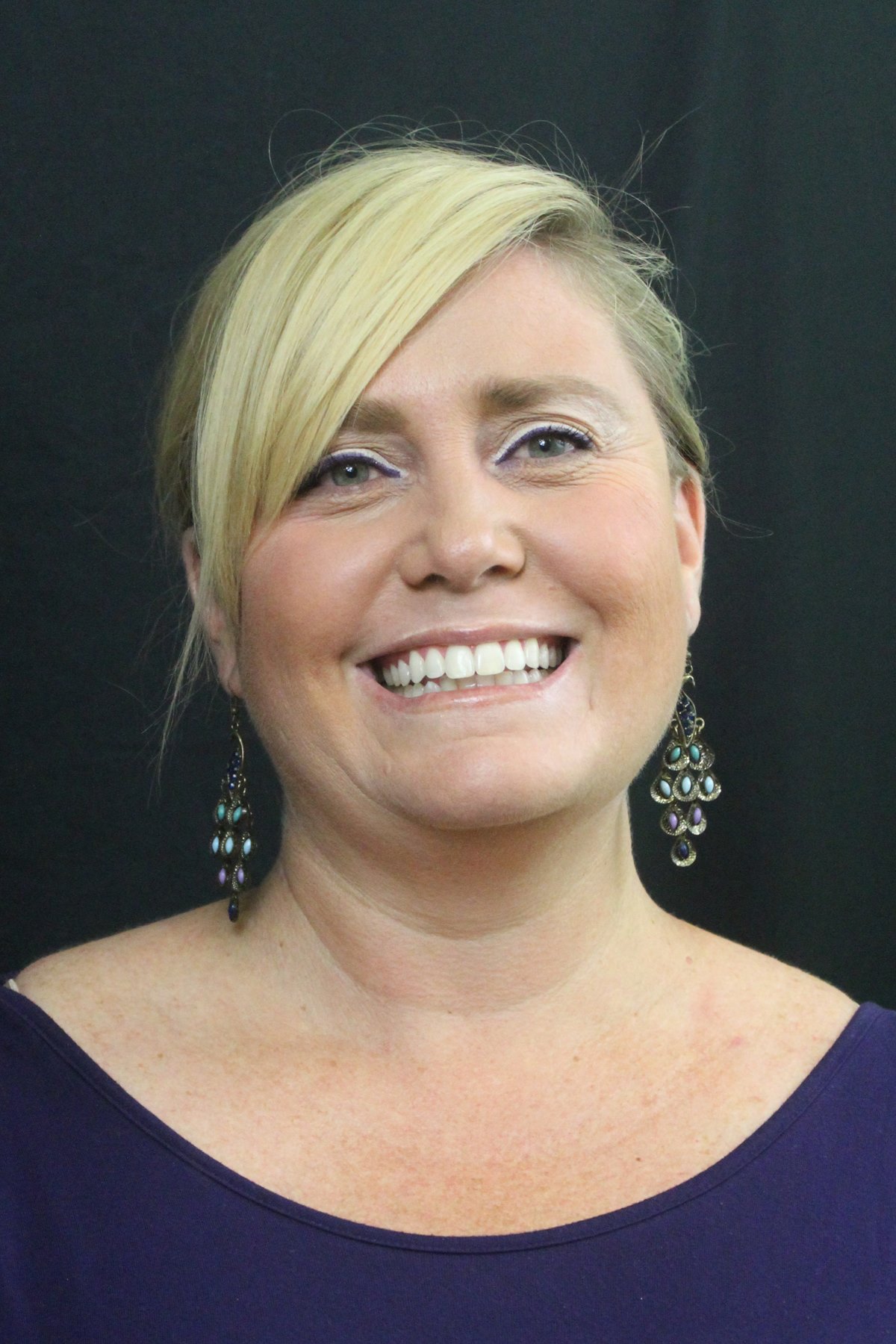
- Date: Friday, January 23
- Time: 12:00 p.m. – 1:15 p.m.
- Location: Radisson Resort at the Port, Antigua Room
- Cost: Free with festival registration
- Speaker: Heather Stapleton
About the Speaker: Heather is one of three Community Engagement Coordinators for the Indian River Lagoon National Estuary Program, inspiring locals to love, protect, and heal the lagoon – with plenty of energy, heart, and humor. Her career is a love letter to education and environmental stewardship: 16 years as Education Director of a nature center on an island in the Indian River Lagoon. And then Executive Director of the Heritage Center and Indian River Citrus Museum. Heather holds degrees in Environmental Studies, Political Science, and French from Indiana University. She spent three years in Benin, West Africa, as a Peace Corps volunteer. Off the clock, she tries to garden, sings at church, and bakes award-winning gluten-free treats. She hates folding laundry, loves waste-free homemade fizzy drinks, and believes the world could use more compost, more kindness, and a little less waste.
Using Motus to Study Bird Movement and Behaviour
Come and listen to John Kendall of SE Volusia Audubon talk about the new Motus Project, the installation in Volusia Co., its educational reach within our local Audubon Society and at Marine Discovery Center, and the critical, exciting and sometimes surprising data it is delivering to scientists. We are learning more about the birds that come through the area and how the weather, coastal geography and the Gulf Stream impact various migratory bird species’ paths through coastal Central Florida. Also, learn how to access data and navigate the Motus system for your own education and data use.

- Date: Friday, January 23
- Time: 1:30 p.m. – 2:45 p.m.
- Location: Radisson Resort at the Port, Bermuda Room
- Cost: Free with festival registration
- Speaker:
About the Speaker: John is a lifetime birder and Audubon member from Indiana and has and is a member of SE Volusia Co. Audubon and lifetime member of Indiana Audubon in addition to Texas and Pennsylvania groups.
He is the former Chair and member of Indiana Bird Records Committee, theditor of Indiana Audubon Quarterly 2008-2016, and Trip Leader for various Birding Festivals and Local groups.
Amazing Sounds of Birds
What bird uses its voice to echolocate inside dark caves? Which bird sings a duet with itself? What bird sings the longest song? What bird has the largest vocabulary? In this presentation for general audiences, Nathan Pieplow answers all these questions and more, using some of the most remarkable audio from over fifteen years of recording birds in the field

- Date: Friday, January 23
- Time: 1:30 p.m. – 2:45 p.m.
- Location: Radisson Resort at the Port, Jamaica Room
- Cost: Free with festival registration
- Speaker: Nathan Pieplow
About the Speaker: Growing up in South Dakota, I got started identifying bird songs by studying the classic “Birding By Ear” field guides in the Peterson series. It wasn’t until 2003, when I faced the frustrations of studying sounds for my first trips to Mexico and Costa Rica, that I became dedicated to finding new and better ways to learn, describe, and catalog bird sounds. Along the way I became a sound recordist and an amateur ethologist (a student of animal behavior) I live in Boulder, Colorado, where I teach writing and rhetoric at the University of Colorado. I am a former editor of the quarterly journal Colorado Birds and one of the developers of the Colorado County Birding Website and the Colorado Birding Trail. I regularly give talks about bird sounds to bird clubs and ornithological societies.
Please Speak Up: Lessons from the Lorax, the Onceler, and Horton
Heather Stapleton has read Dr. Seuss’ The Lorax far more times than any adult should admit, and she has a surprising take. In her talk, she explores why the Lorax and the Onceler, despite their passions, fail to turn concern into action, whereas Horton from Dr. Suess’ Horton Hears a Who is truly the unsung hero of effective advocacy.
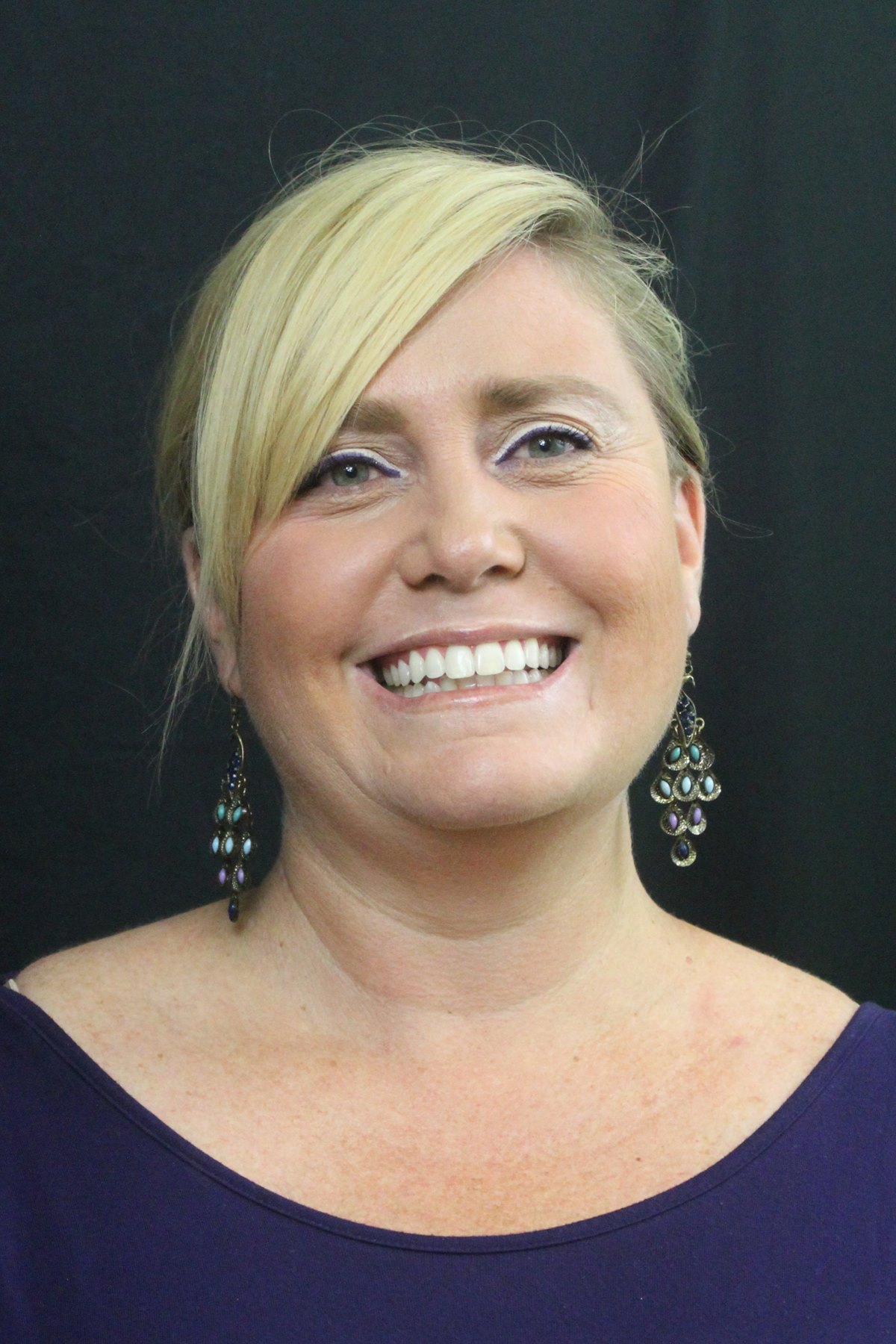
- Date: Friday, January 23
- Time: 1:30 p.m. – 2:45 p.m.
- Location: Radisson Resort at the Port, Antigua Room
- Cost: Free with festival registration
- Speaker: Heather Stapleton
About the Speaker: Heather is one of three Community Engagement Coordinators for the Indian River Lagoon National Estuary Program, inspiring locals to love, protect, and heal the lagoon – with plenty of energy, heart, and humor. Her career is a love letter to education and environmental stewardship: 16 years as Education Director of a nature center on an island in the Indian River Lagoon. And then Executive Director of the Heritage Center and Indian River Citrus Museum. Heather holds degrees in Environmental Studies, Political Science, and French from Indiana University. She spent three years in Benin, West Africa, as a Peace Corps volunteer. Off the clock, she tries to garden, sings at church, and bakes award-winning gluten-free treats. She hates folding laundry, loves waste-free homemade fizzy drinks, and believes the world could use more compost, more kindness, and a little less waste.
Taking your Birding to the Next Level
During this presentation, we’ll explore different strategies for improving bird identification skills beyond the basics. How can bird ID experts identify a bird when it’s a mile (or more!) away, only viewing it for one-tenth of a second, or before you even know it’s there? Learn how to apply the expression “failure is fertilizer” to your birding skills and learn new ways to practice and improve. We’ll explore some benefits of eBird and Merlin but also look at ways these tools can deceive you. Come find out more about techniques to improve bird ID skill, learn more about birds, and also have fun!
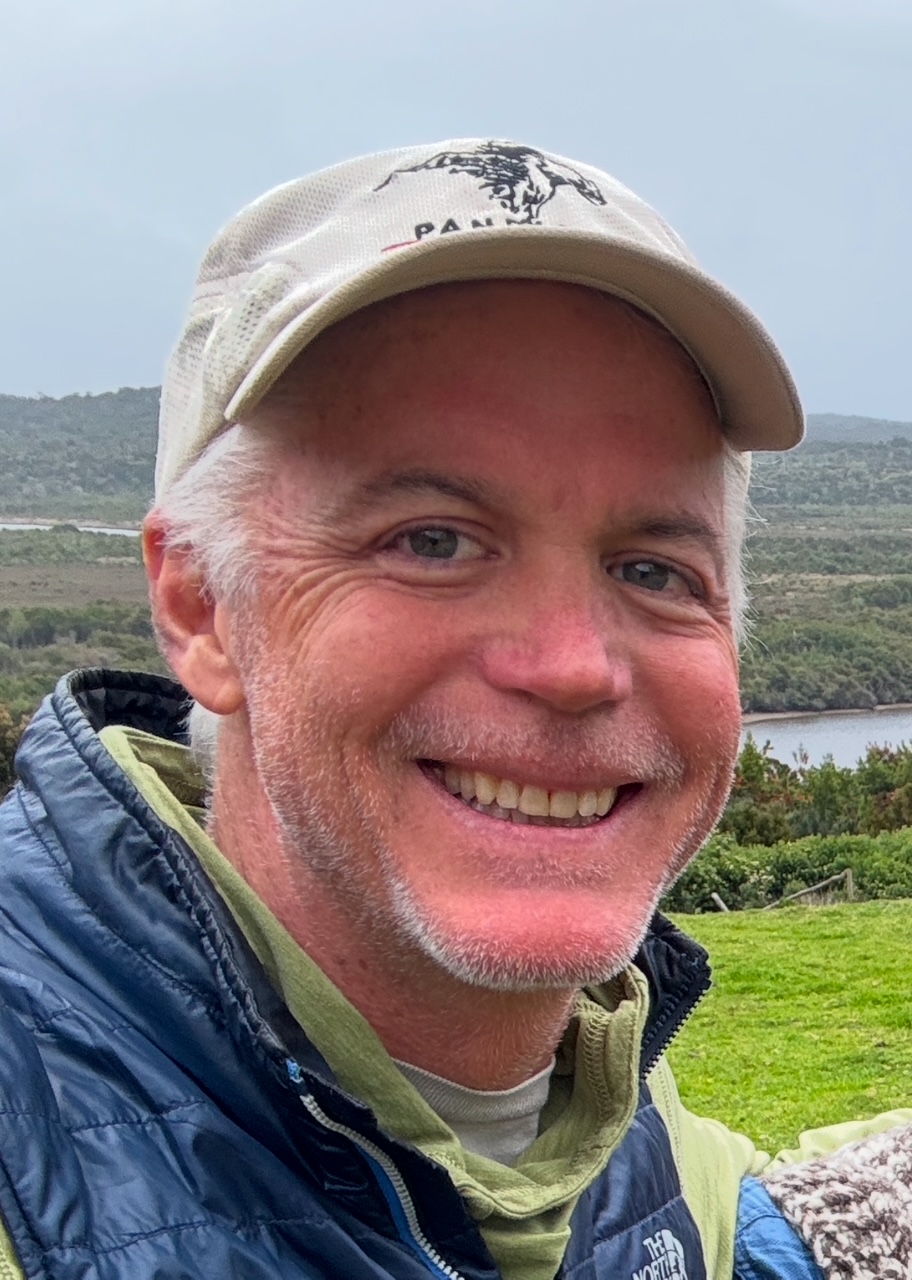
- Date: Friday, January 23
- Time: 3:00 p.m. – 4:15 p.m.
- Location: Radisson Resort at the Port, Bermuda Room
- Cost: Free with festival registration
- Speaker: Adam Kent
About the Speaker: An Anhinga sparked Adam’s passion for birds when he was a little kid. Since then, an enthusiasm for the natural world has led him to a variety of jobs included assessing sites for the Great Florida Birding Trail, working as Florida’s first Scrub-Jay Conservation Coordinator, and as a biologist and natural history tour leader. He also conducts Breeding Bird Surveys, Christmas Bird Counts, and other bird surveys. Adam is a past President of the Florida Ornithological Society and is on the steering committee of Florida’s second Breeding Bird Atlas. Adam has been leading bird identification workshops since the 1990s.
The Language of Birds
All around us, all the time, the birds are telling us who they are and what they are doing. In this talk for any audience, Nathan Pieplow unlocks the secrets of their language. You’ll listen in on the pillow talk of a pair of Red-winged Blackbirds, and learn the secret signals that Cliff Swallows use when they have found food. You’ll learn how one bird sound can have many meanings, and how one meaning can have many sounds—and how, sometimes, the meaning isn’t in the sounds at all. This talk from the author of the Peterson Field Guide to Bird Sounds is an accessible, entertaining introduction to a fascinating topic.

- Date: Friday, January 23
- Time: 3:00 p.m. – 4:15 p.m.
- Location: Radisson Resort at the Port, Jamaica Room
- Cost: Free with festival registration
- Speaker: Nathan Pieplow
About the Speaker: Growing up in South Dakota, I got started identifying bird songs by studying the classic “Birding By Ear” field guides in the Peterson series. It wasn’t until 2003, when I faced the frustrations of studying sounds for my first trips to Mexico and Costa Rica, that I became dedicated to finding new and better ways to learn, describe, and catalog bird sounds. Along the way I became a sound recordist and an amateur ethologist (a student of animal behavior). I live in Boulder, Colorado, where I teach writing and rhetoric at the University of Colorado. I am a former editor of the quarterly journal Colorado Birds and one of the developers of the Colorado County Birding Website and the Colorado Birding Trail. I regularly give talks about bird sounds to bird clubs and ornithological societies.
My Plastic Diet
Join Heather Stapleton as she reveals the hidden flaws of single-stream recycling and why most plastics aren’t truly recycled. Hear her inspiring journey of cutting plastic use. Learn how microplastics are threatening ecosystems like the Indian River Lagoon. Discover practical tips to reduce your own plastic reliance. Connect with others committed to real environmental change — because our choices matter.
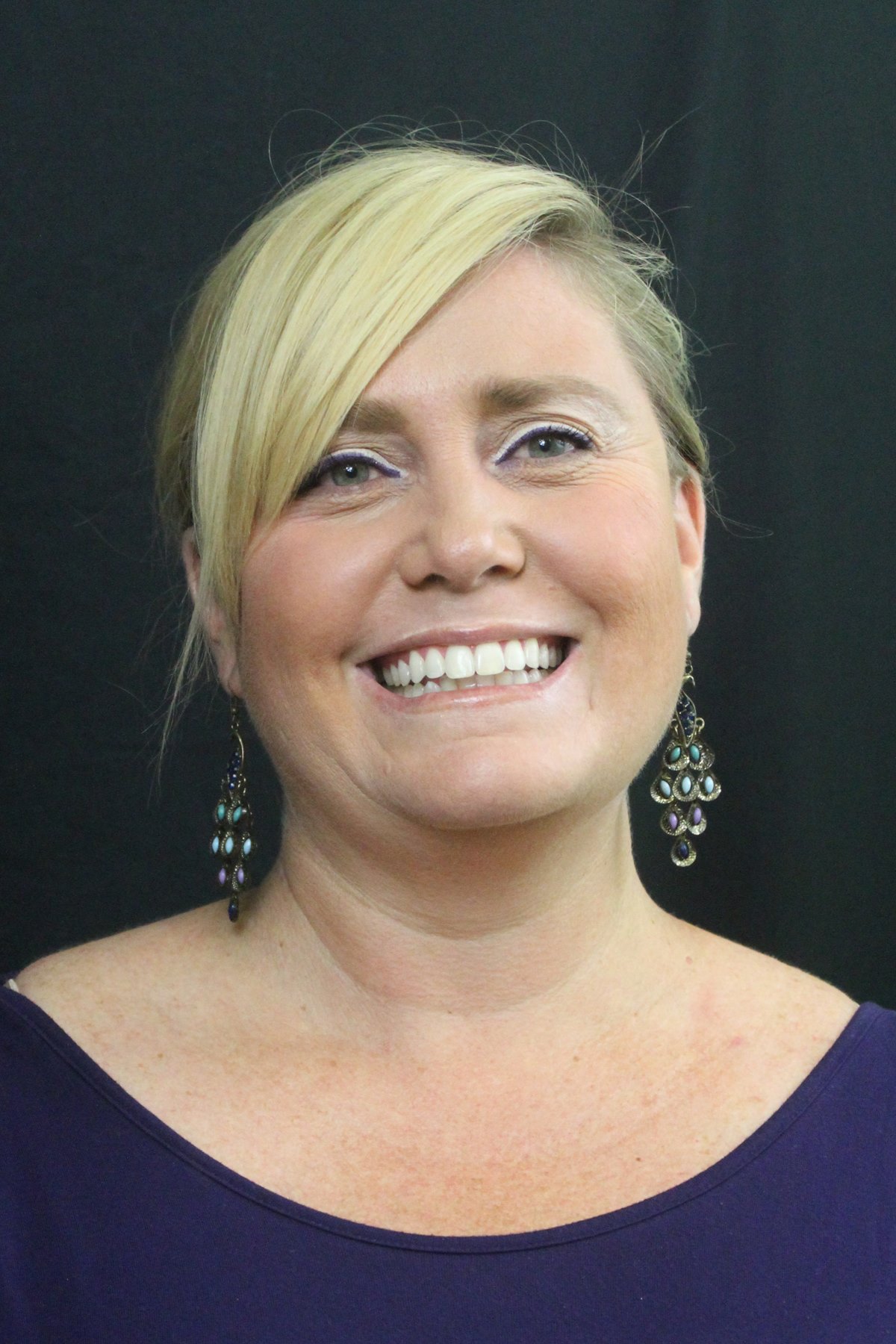
- Date: Friday, January 23
- Time: 3:00 p.m. – 4:15 p.m.
- Location: Radisson Resort at the Port, Antigua Room
- Cost: Free with festival registration
- Speaker: Heather Stapleton
About the Speaker: Heather is one of three Community Engagement Coordinators for the Indian River Lagoon National Estuary Program, inspiring locals to love, protect, and heal the lagoon – with plenty of energy, heart, and humor. Her career is a love letter to education and environmental stewardship: 16 years as Education Director of a nature center on an island in the Indian River Lagoon. And then Executive Director of the Heritage Center and Indian River Citrus Museum. Heather holds degrees in Environmental Studies, Political Science, and French from Indiana University. She spent three years in Benin, West Africa, as a Peace Corps volunteer. Off the clock, she tries to garden, sings at church, and bakes award-winning gluten-free treats. She hates folding laundry, loves waste-free homemade fizzy drinks, and believes the world could use more compost, more kindness, and a little less waste.
Fakhatchee Strand’s Ghost Orchids and Other Rare Plants
The Fakahatchee Strand State Preserve is Florida’s largest state park and contains some of the most diverse rare plant life in the United States. Thirty-three kinds of ferns, some 10 feet high, grow here, the most on the continent. There are 16 species of bromeliads, air plants resembling pineapples, including some found only here. Forty-four kinds of orchids, all listed as threatened or endangered, are hidden in the dense tangle of jungle. These include the iconic ghost orchid. The Orchid Thief is a 1998 non-fiction book by American journalist Susan Orlean, based on her investigation of the 1994 arrest of horticulturist John Laroche and a group of Seminoles in south Florida for poaching rare orchids in the Preserve. The movie Adaptation with Meryl Streep and Nicolas Cage was based on this book.
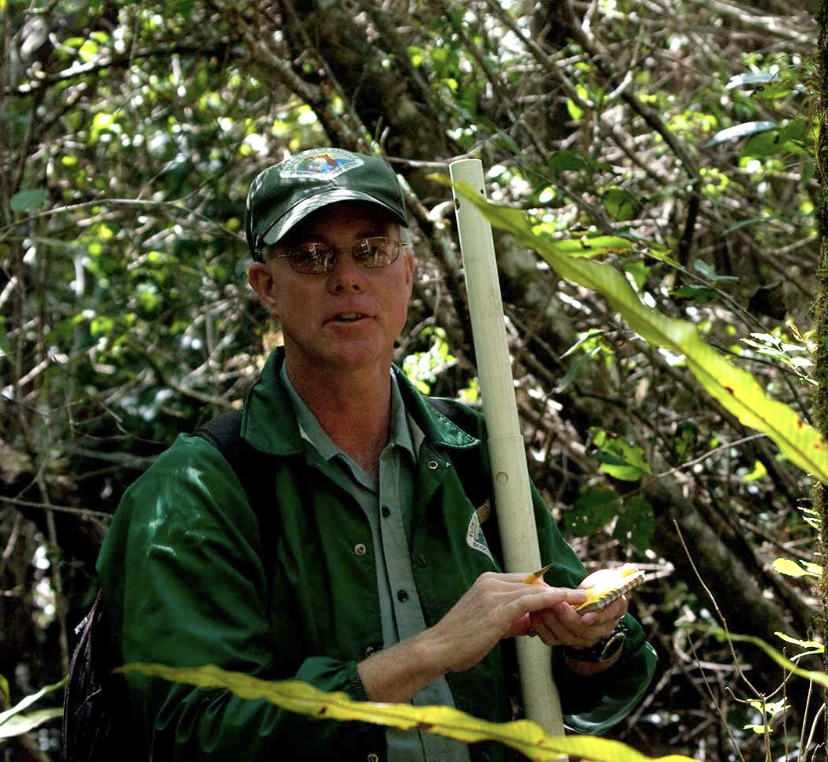
- Date: Friday, January 23
- Time: 3:00 p.m. – 3:15 p.m.
- Location: Radisson Resort at the Port, Montego Room
- Cost: Free with festival registration
- Speaker: Mike Owen
About the Speaker: Mike Owen worked thirty years as park biologist at Fakahatchee Strand and retired in summer 2023. A University of South Florida graduate, Mike worked for the state’s marine research division in St. Petersburg, but when he went to work for the park service, he found his niche. At home in the swamp, he found a balance between educating about Fakahatchee’s rare plants and protecting them.
Saturday, January 24
A Shared Vocabulary
Most attempts to teach bird sound identification rely primarily on memorization. This workshop takes a different approach. Just as beginning birders learn the different parts of the bird and how to distinguish colors like “buff” and “rufous,” we will study the different parts of a sound and how to distinguish tone qualities like “burry” and “polyphonic.” Once we have a common vocabulary for describing bird sounds, we can apply these skills to some bird sound identification challenges in the region. No matter your level of experience, this workshop will help you listen to sounds more analytically, describe them more accurately, and use them more effectively in identifying birds.

- Date: Saturday, January 24
- Time: 7:30 a.m. – 8:45 a.m.
- Location: Radisson Resort at the Port, Jamaica Room
- Cost: Free with festival registration
- Speaker: Nathan Pieplow
About the Speaker: All around us, all the time, the birds are telling us who they are and what they are doing. In this talk for any audience, Nathan Pieplow unlocks the secrets of their language. You’ll listen in on the pillow talk of a pair of Red-winged Blackbirds, and learn the secret signals that Cliff Swallows use when they have found food. You’ll learn how one bird sound can have many meanings, and how one meaning can have many sounds—and how, sometimes, the meaning isn’t in the sounds at all. This talk from the author of the Peterson Field Guide to Bird Sounds is an accessible, entertaining introduction to a fascinating topic.
Disappearing shorelines: An under-appreciated threat to the Indian River Lagoon
Native Brevardian and ecologist Tim Kozusko will discuss the effects of population growth and climate change on near-shore and shoreline habitats in the Indian River Lagoon. Tim will use declining populations of birds, reptiles, and invertebrates to illustrate habitat loss and changes in species composition.
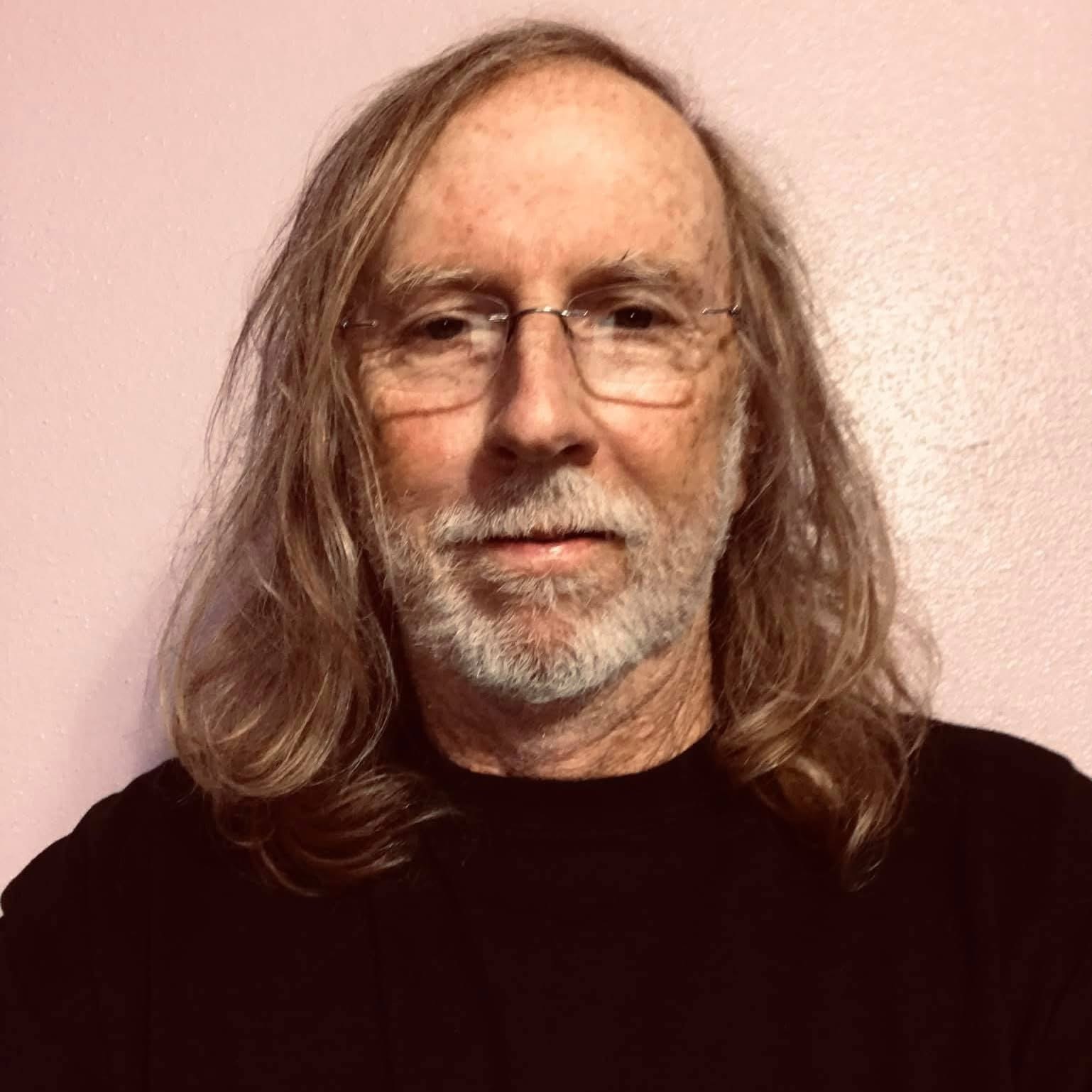
- Date: Saturday, January 24
- Time: 12:00 p.m. – 1:15 p.m.
- Location: Radisson Resort at the Port, Bermuda Room
- Cost: Free with festival registration
- Speaker: Tim Kozusko
About the Speaker: Tim Kozusko recently retired after a career at Kennedy Space Center as an ecologist. He was born and raised in Cocoa Beach Florida and is a board member of the Merritt Island Wildlife Association. He has 20 years experience with prescribed fire in central Florida. He resides in Melbourne Beach with wife Laura.
Rare Birds, Close Calls, and Adventures of an Eco-Explorer
From the jungles of New Guinea to the plains of Tanzania, author Peter Alden tells the story of his lifelong quest to see the world’s rarest birds — a journey through the heart of our planet’s wild places. As a pioneer of ecotourism, he led travelers across continents long before GPS and guidebooks, facing snakes in the Amazon, lions in camp, and more than a few brushes with danger—all in pursuit of wonder. Peter Alden’s story is a reminder that while the world keeps changing, the call of the wild and our need to answer it never fades. This talk coincides with the release of his memoir – A Wild Life. Peter is the author of 15 books on North American and African wildlife, including the National Audubon Society’s Regional Field Guide Series.
Here is a link to the final draft of the memoir as a flipbook.
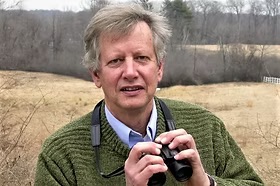
- Date: Saturday, January 24
- Time: 12:00 p.m. – 1:15 p.m.
- Location: Radisson Resort at the Port, Jamaica Room
- Cost: Free with festival registration
- Speaker: Peter Alden
About the Speaker: Peter Alden is a world renowned naturalist, lecturer, ecotourism guide and author of 15 books on North American and African wildlife, including the National Audubon Society’s Regional Field Guide Series. He is considered to be an authority on birds and larger mammals of the world and is often consulted by the media and the ecotourism industry for his expertise.
Birds & Culture in Southern Portugal
This is a photographic presentation with an emphasis on the importance of Southern Portugal as a birding destination. The great combination of different habitats in a relatively small territory, make it possible to see a great number of species, including all the endemic birds of the Iberian Peninsula, without the need of lengthy travel. All of this, including beautiful landscapes, fascinating history, great food and wines and plentiful sunshine. Joao will talk about some of the practical aspects, should you plan a visit.
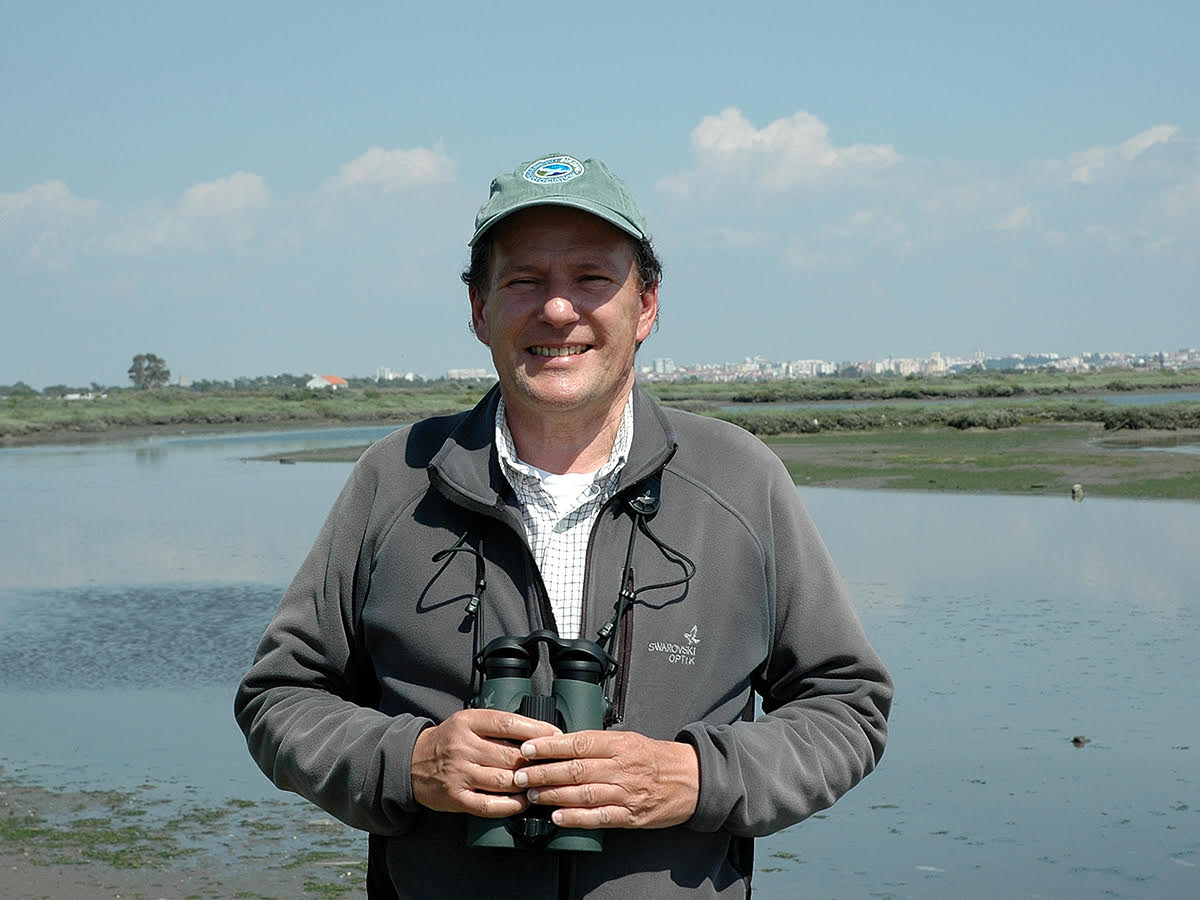
- Date: Saturday, January 24
- Time: 12:00 p.m. – 1:15 p.m.
- Location: Radisson Resort at the Port, Antigua Room
- Cost: Free with festival registration
- Speaker: João Jara
About the Speaker: João was born in Lisbon and studied Biology at the Faculdade de Ciências de Lisboa, from where he developed his professional career in the pharmaceutical industry, as senior manager and director of various multinational companies. With more than 40 years of field experience, he has an intimate knowledge of the birds and birding in Portugal and Spain. He has travelled extensively in Europe, Africa, Asia and the Americas with birding as the main objective. João was a member of the national board of SPEA (BirdlLife International partner in Portugal) and was a voting member of the Portuguese Rarities Committee from 2005 until 2011 and chairman of the committee from 2007 until 2011. Author and co-author of articles about birds, João is also co-author of the book Where to Watch Birds in Southern Portugal. In 2008, he launched the first Portuguese company totally dedicated to the organization of birdwatching tours, Birds & Nature Tours Portugal, which he manages and guides many of its tours, as well as presenting bird identification courses. Besides birds, he has an active special interest in amphibians, reptiles and fish.
Discovering Colombia’s Birding Wonders
Ecotourism in Colombia has grown tremendously over the past decade, fueled by new opportunities for exploration and a growing recognition of the country’s extraordinary treasures. As one of the world’s mega diverse nations, Colombia dazzles with its stunning landscapes, vibrant cultures, and unmatched richness in birdlife—gifts that inspire both visitors and Colombians alike.
Join Mariah and Luis from Woodstars Birding and Nature Tours for an exciting journey across some of Colombia’s most spectacular birding hotspots. From the sun-soaked Caribbean coast in the north to the enchanting white-sand forests of the far eastern Amazon Basin, they will share their favorite places, unforgettable sightings, and the remarkable stories that make each region truly magical.
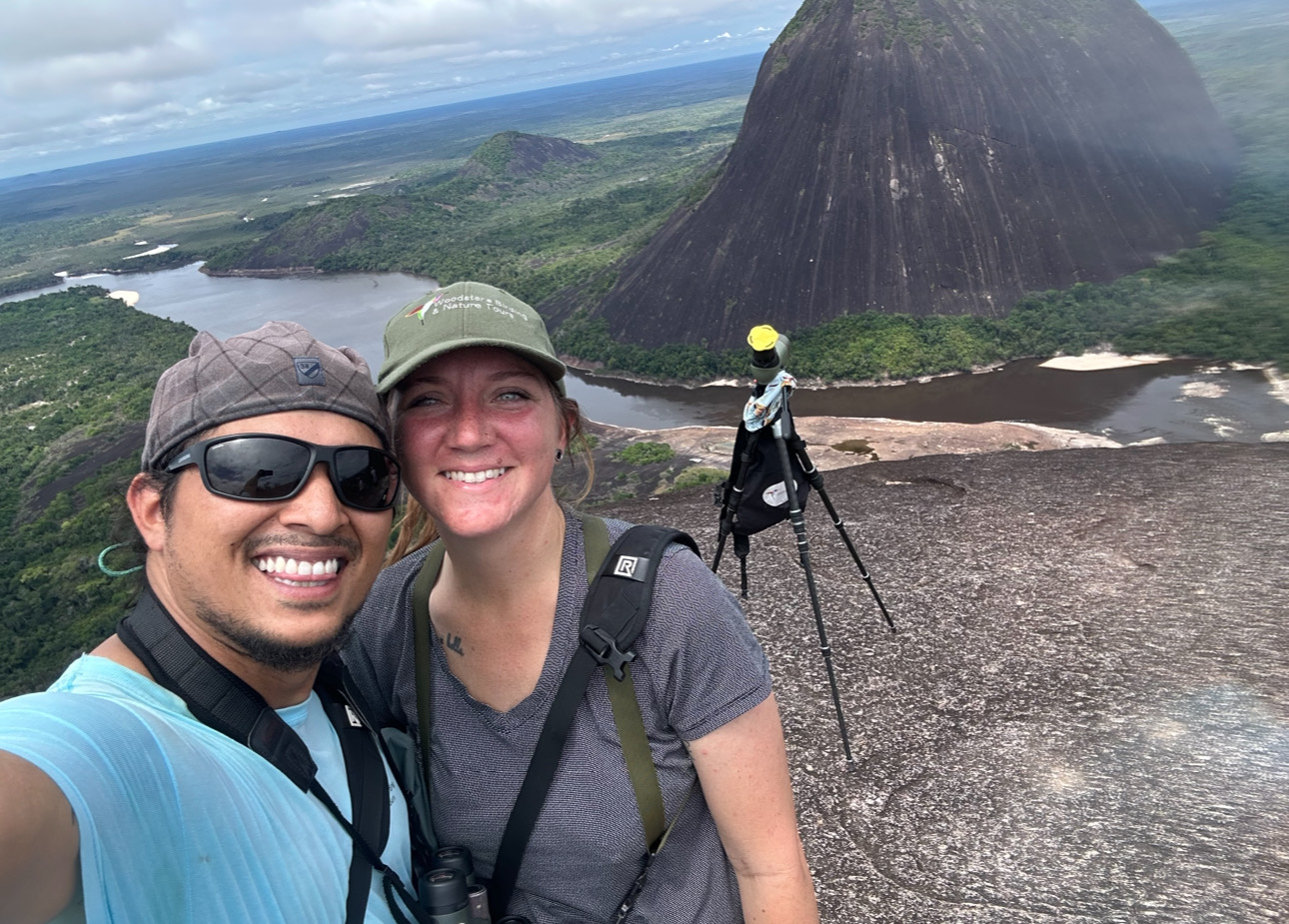
- Date: Saturday, January 24
- Time: 1:30 p.m. – 2:45 p.m.
- Location: Radisson Resort at the Port, Bermuda Room
- Cost: Free with festival registration
- Speaker: Luis Gles and Mariah Hryniewich
About the Speakers:
Luis Gles is a naturalist from Colombia, where he grew up exploring his beautiful country. It was here he fell in love with nature and his fascination with birds began. For over a decade Luis has been sharing that love and expertise as a professional tour guide leading trips throughout the US, the Caribbean and Central & South America. Today he is co-owner / operator of Woodstars Birding and Nature Tours with his lovely Mariah Hryniewich and is a familiar face in the birding community. He is a dedicated member of the Florida Keys Hawkwatch team, an ambassador at trade shows across the US for Kowa Sporting Optics and an active phonescoper dedicated to sharing his techniques with others. His infectious charisma and energy along with his passion for everything related with nature make him a great field teacher, and his bilingual skills help connect with Spanish-speaking nature lovers. When he is not chasing or studying birds, he loves searching for reptiles & butterflies.
Mariah Hryniewich is a native Floridian, born and raised on the west coast of Florida where she has had a love for nature and wildlife since a young age. The opportunity to count migrating raptors for the Florida Keys Hawkwatch captivated her fascination with birds and she has been following them around the world since. She now owns & operates Woodstars Birding & Nature Tours with her partner Luis Gles, guiding from remote Alaska to the tropical forests of the Caribbean and Colombia. When not leading tours, Mariah divides her time serving as the birding manager for Phone Skope, represents Kowa Sporting Optics at festivals and engages in various fieldwork with the Avian Research and Conservation Institute, where she conducts breeding bird surveys, point counts, and assists in raptor projects. From celebrating rare gems and local beauties to sharing her favorite digiscoping tips, she can’t wait to see you out on the trail!
Listen to Her Sing
Only male birds sing, right? Wrong! In fact, this widespread notion has a lot more to do with human cultural and geographic biases than it has to do with nature. In this talk, Nathan Pieplow explores the often-overlooked songs of female birds. You will hear the pair duets of meadowlarks and blackbirds, the musical songs of female cardinals and orioles, and the distinctive song of the female Canyon Wren, among others. In which species do females actually sing more often than males? How do you know when you’re listening to a female Blue Jay? And where did we even get this crazy idea that only male birds sing? Answers to these questions and more in this presentation.

- Date: Saturday, January 24
- Time: 1:30 p.m. – 2:45 p.m.
- Location: Radisson Resort at the Port, Jamaica Room
- Cost: Free with festival registration
- Speaker: Nathan Pieplow
Growing up in South Dakota, I got started identifying bird songs by studying the classic “Birding By Ear” field guides in the Peterson series. It wasn’t until 2003, when I faced the frustrations of studying sounds for my first trips to Mexico and Costa Rica, that I became dedicated to finding new and better ways to learn, describe, and catalog bird sounds. Along the way I became a sound recordist and an amateur ethologist (a student of animal behavior). I live in Boulder, Colorado, where I teach writing and rhetoric at the University of Colorado. I am a former editor of the quarterly journal Colorado Birds and one of the developers of the Colorado County Birding Website and the Colorado Birding Trail. I regularly give talks about bird sounds to bird clubs and ornithological societies.
Birding in Portugal & Spain
This is a photographic presentation with an emphasis on the importance of the Iberian Peninsula (Portugal & Spain) as a birding destination. The geographic localization of this peninsula in a migratory route, plus the diversity of different habitats, explain the diversity of birds and the fact it is a peninsula which only land link with Europe is characterized by the Pyrenees, explain the numerous endemic animals, including birds. All of this, including beautiful landscapes, fascinating history, great food and wines and plentiful sunshine. Joao will talk about some of the practical aspects, should you plan a visit.

- Date: Saturday, January 24
- Time: 1:30 p.m. – 2:45 p.m.
- Location: Radisson Resort at the Port, Antigua Room
- Cost: Free with festival registration
- Speaker: João Jara
About the Speaker: João was born in Lisbon and studied Biology at the Faculdade de Ciências de Lisboa, from where he developed his professional career in the pharmaceutical industry, as senior manager and director of various multinational companies. With more than 40 years of field experience, he has an intimate knowledge of the birds and birding in Portugal and Spain. He has travelled extensively in Europe, Africa, Asia and the Americas with birding as the main objective. João was a member of the national board of SPEA (BirdlLife International partner in Portugal) and was a voting member of the Portuguese Rarities Committee from 2005 until 2011 and chairman of the committee from 2007 until 2011. Author and co-author of articles about birds, João is also co-author of the book Where to Watch Birds in Southern Portugal. In 2008, he launched the first Portuguese company totally dedicated to the organization of birdwatching tours, Birds & Nature Tours Portugal, which he manages and guides many of its tours, as well as presenting bird identification courses. Besides birds, he has an active special interest in amphibians, reptiles and fish.
EBird Tips and Tricks: Maximizing Your Use of the World’s Largest Citizen Science Database
Join Will Johnson, regional eBird reviewer for Brevard, Volusia, and Indian River counties, for an interactive and wide-ranging discussion on how to make the most of eBird for reporting and tracking your bird observations, exploring the birdlife in your area, and contributing to impactful citizen science. In this session we will place particular emphasis on demystifying the eBird review process and learning best practices for documenting your sightings so that you can become a more skilled and intentional (e)birder in the field. Whether you’re a veteran eBird user or completely new to the program, this session is designed so that everybody will take away valuable lessons they can apply during the festival’s many fantastic field trips.
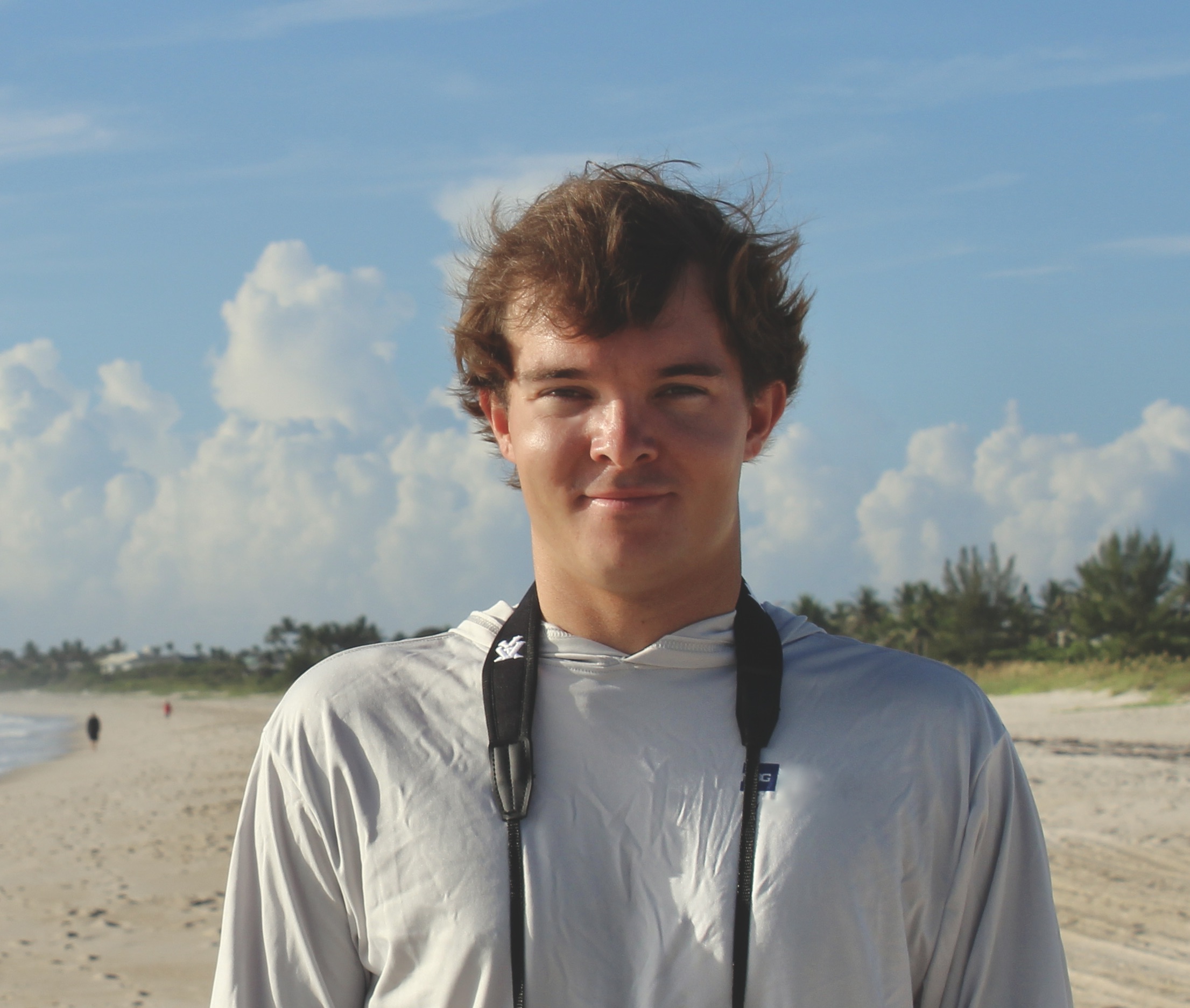
- Date: Saturday, January 24
- Time: 3:00 p.m. – 4:15 p.m.
- Location: Radisson Resort at the Port, Bermuda Room
- Cost: Free with festival registration
- Speaker: Will Johnson
About the Speaker: Will Johnson serves as the regional eBird reviewer for Brevard, Volusia, and Indian River counties and contributes to local environmental organizations as a frequent guest speaker and tour leader. A lifelong resident and avid birder of east-central Florida, Will has developed a thorough expertise of local birdlife and is particularly knowledgeable about this area’s migration patterns, vagrancy trends, and biogeography. In addition to spending extensive time in the field, Will enjoys expressing his love of birds through art and illustration and has had his artwork featured in multiple local and national publications. Will recently graduated from Dartmouth College in Hanover, NH with a bachelor’s degree in environmental studies, and he currently works remotely from Vero Beach, FL for a climate tech startup supporting nature-based carbon removal projects.
The Best Bird Sounds You’ve Never Heard
What if I told you that vultures, shorebirds, and House Sparrows are some of the most accomplished avian singers in North America? Maybe you’ve never heard them before. Or maybe you’ve never heard them quite this way. This presentation will delve into the surprising world of bird sounds that are hidden, underappreciated, and sometimes flat-out denied to exist. You’ll discover the concealed complexity inside a so-called “chirp”; hear the surprising sound of a vulture’s flight display; and learn about many common birds whose song you may have missed, including singing ducks, hooting sandpipers, and wing-clapping owls. Your guide will be Nathan Pieplow, the author of the Peterson Field Guide to Bird Sounds, who will unravel the mysteries of some of the rarest and most startling sounds in his collection after two decades of nature sound recording.

- Date: Saturday, January 24
- Time: 3:00 p.m. – 4:15 p.m.
- Location: Radisson Resort at the Port, Montego Room
- Cost: Free with festival registration
- Speaker: Nathan Peiplow
About the Speaker: Growing up in South Dakota, I got started identifying bird songs by studying the classic “Birding By Ear” field guides in the Peterson series. It wasn’t until 2003, when I faced the frustrations of studying sounds for my first trips to Mexico and Costa Rica, that I became dedicated to finding new and better ways to learn, describe, and catalog bird sounds. Along the way I became a sound recordist and an amateur ethologist (a student of animal behavior). I live in Boulder, Colorado, where I teach writing and rhetoric at the University of Colorado. I am a former editor of the quarterly journal Colorado Birds and one of the developers of the Colorado County Birding Website and the Colorado Birding Trail. I regularly give talks about bird sounds to bird clubs and ornithological societies.
Birding in the Age of Technology

- Date: Saturday, January 24
- Time: 3:00 p.m. – 4:15 p.m.
- Location: Radisson Resort at the Port, Antigua
- Cost: Free with festival registration
- Speaker: Henry Meade & Owen Woodhouse
About the Speaker: Henry Meade and Owen Woodhouse are emerging leaders in the next generation of birders and photographers, each bringing a distinct talent and passion to their craft. Henry is an award-winning nature and sports photographer from the Chicagoland area, known for his sharp eye for detail, storytelling focus, and work as lead sports photographer at his high school. A proud Hunt’s Photo and Video affiliate and trip leader with the DuPage Birding Club, he blends creativity and technical excellence whether documenting wildlife or athletic competition.
Owen’s fascination with birds began early and accelerated after a formative 2019 trip to Florida. His dedication led him to complete a Big Year in 2022, recording 279 species and solidifying his place in his local birding community. A seasoned walk leader since age 13, he brings both knowledge and enthusiasm to his guiding. Owen is also an accomplished young bird photographer whose work—shaped through Gary’s Future Frame Society—has earned national recognition, including publication in the 2022 Project FeederWatch calendar by the Cornell Lab of Ornithology.
Birding the Prime Meridian – Sharks, Sea Turtles, and Seabirds of the South Atlantic
Departing from the Falkland Islands, we’ll meander along 0⁰-Longitude to explore the remote and inaccessible seabird colonies of the stormy South Atlantic – South Georgia, Tristan du Cunha, Nightingale, Gough and Ascension islands, as well as lovely St. Helena – where Napoleon’s last days were spent tending his garden – and keeping out of trouble with the British. Quoting R.C. Murphy, lucky passengers spot some of the rarest seabirds and “…belong to a higher cult of mortals for I have seen the albatross.”
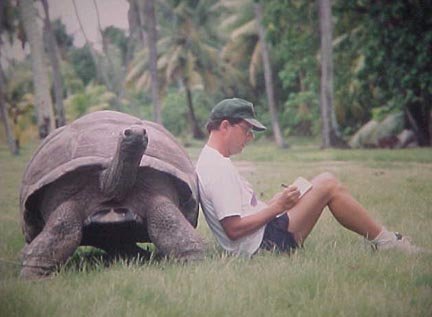
- Date: Saturday, January 24
- Time: 3:00 p.m. – 4:15 p.m.
- Location: Radisson Resort at the Port, Jamaica Room
- Cost: Free with festival registration
- Speaker: Dave Grant
About the Speaker: Dave Grant is the Director of Conservation at the Shark Research Institute in Princeton, NJ. When not studying whale sharks and the protection of all sharks and rays, he is often working on ships in polar regions studying birds and other wildlife. Fascinated by all marine life, he is particularly experienced in the behavior and conservation of colonial seabirds.
